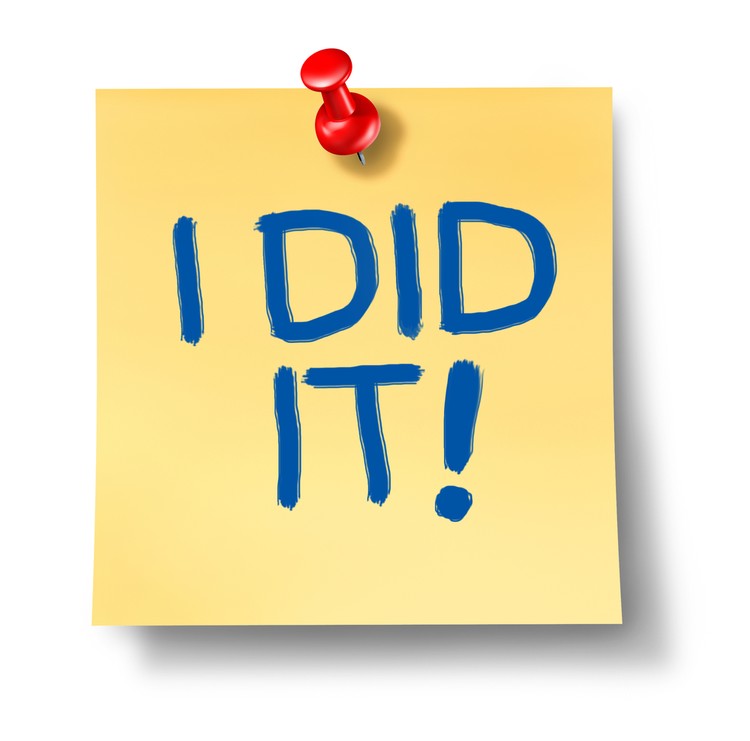When I moved to a Brooklyn neighborhood with a median age of around 23, I said to myself that it would be time to move again when I could no longer hustle up the subway steps as fast as the kids. In the eight years since, I’ve gotten a little wiser. Now I’m planning to let the hipsters pass or help me with my shopping bags. I’ve even figured out that it’ll be good for both of us.
But I hadn’t put it to the test until recently, when I was heading to the airport after work and therefore schlepping a suitcase along with my purse and computer bag. After I’d wrangled the suitcase down the one flight of stairs in my house, my back was already twinging. So when I got to the subway, I forced myself to ask someone to carry my bag down the steps. Lots of stairs. I had to ask three times. When I got to work, I posted on Facebook that “Asking was harder than carrying the damn thing, and I’m actually proud of myself.”
It turned into a very interesting thread, once I’d clarified that I already possessed wheels, and that the point was that we’re all going to need help sooner or later. And I actually think it made my helpers feel good. Not counting one scowling teenager.
“Not until very recently did I realize that when the person bagging my groceries asks if I want help to my car I can say yes without shame,” wrote Terry Finn in the [Facebook] thread. An actor, she dated my ex-husband before he was my husband, that’s how far back we go, and Facebook has rekindled a wonderful friendship.
More from Terry: “Another kind of ‘letting go’ today while walking past a new tenant moving in to my apt complex. Watching the struggle to get a coffee table from the truck to the door I realized I couldn’t help. Always having been proud of my physical strength, I was the first one helping the mom with the stroller down the subway stairs or anyone struggling with an unwieldy burden. Now I see that I can’t really do much beyond holding the door [or] just getting out of the way. Even if I still had superhuman strength I don’t think anyone would be comfortable with a white-haired lady huffing and puffing her way through the hall with a box of their unproduced screenplays.”
Terry lives in Los Angeles. In my neighborhood it would be a box of artisanal cocktail recipes.
“I’ve always thought of myself as physically strong too,” I admitted in the thread, adding “I’m all for the kind of discomfort that dislodges people’s preconceptions.” The notion of a white-haired lady with superhuman strength was quite appealing. Hmmm, not a productive line of thought for someone trying to come to terms with a somewhat unwelcome shift in identity.
“All right, all right, step aside you amateurs,” wrote Fletcher Barton, a writer and friend from college days, who lives north of New York City. “As Ashton knows, I have an incurable, progressive muscle disease (I’m a Jerry’s kid), and when it comes to asking for help, I know. Prove it? OK, often as not when somebody’s done helping me, they thank me! Sounds unbelievable, I know, especially given my surly bitch interpersonal style, but the inventor of applied positive psychology, Martin Seligman, discusses just such a thing in one of his books—Flourish I think—saying essentially that after lifting his bridge partner in and out of the car he felt a surprising, deep human connection. Another positive psychologist, Barbara Fredrickson, has written a book, Love 2.0 (2013), saying such passing moments of connection can generate valid episodes of love. Everybody should be crippled! All right, it’s not a prerequisite for happiness, but anybody who plans to get old should read these books. Even this far along, life surprises.”
Beautifully put—and gratifying to hear from someone who’s been in the trenches, as it were, far longer than I. Fletcher now uses a motorized wheelchair, walker or scooter to get around. As disability-rights activists say, we are all disabled sometime. Most of us see disability, like old age, through the lens of loss alone. How energizing—though not surprising after all the reading I’ve been doing—to hear firsthand that the reality is more nuanced and more positive.
“Paradoxically, asking for help is empowering for the asker as well,” I noted, adding to the thread. Sociologist Meika Loe describes this process many times over in Aging Our Way: Lessons for Living from 85 and Beyond (2011), a five-year study of how 30 of the oldest old meet the ever-increasing challenges of aging in place.
“Perhaps the most profound, even ironic, lesson from their stories is this: asking for help enables autonomy and control—as long as it is on the elder’s terms,” Loe writes in Aging Today.
More from Fletcher, clarifying her post: “The take-away isn’t that it feels good to help the handicapped, though it might, but that there is a way to ask for and accept and appreciate help that leaves the helper grateful too. It seems magical, really, and it’s probably quite rare and requires practice and tweaking. Nor of course will it work with all helpers. But it’s worthwhile to keep in mind, as we march toward needing to ask more often…the prospect of at least occasional victory brings a modest delight.”
I make the same point sometimes when talking to groups: “The terms and power dynamics will shift. The ideal is to give and to receive with grace. I’ve got time to practice. The key, it seems to me, is to let go of the idea that dependence is any more shameful at the end of life than at the beginning. We are social creatures: all of life is interdependence.”



